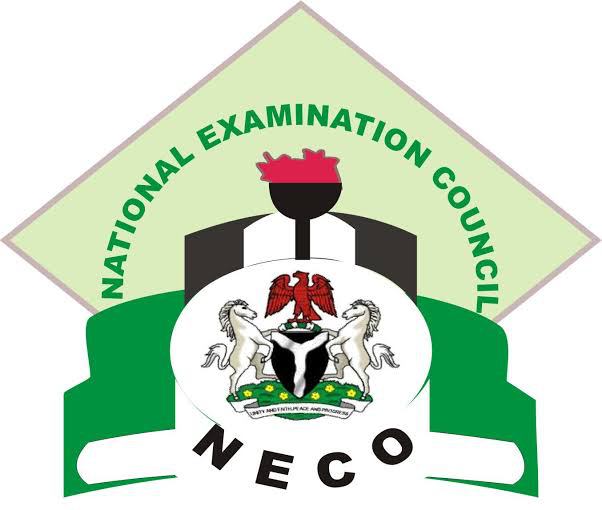Literature 3 portal
(4)
ACP YAKUBU Yakubu presented in the play as an Assistant Commissioner of Police. He stands out as an incorruptible and honest police officer. He withstood pressures from his boss, the Commissioner to stop investigating Chief’s activities at the Ministry of External Relations. His investigations led to the arrest and prosecution of Chief, Ochuole, Madam Hoha, the Commissioner of Police and the corrupt Justice. In other words ACP yakubu, laments bitterly on why the judge frees Aloho. And ACP yakubu asks Ojo to work on the embezzlement and smuggling allegations placed against Chief Ade Haladu-Amaka, the minister. He became very angry when his boss treates matters with levity. His actions ensures that the culprits are brought to book. His persistence in maintaining and upholding his integrity makes him a good officer.
(5)
Asagu Joseph as portrayed in the play is a Nigerian and Beneatha’s hand in marriage. His role in the play provided an international perspective on Africa. Asagi is proud of his African heritage in that he hopes to return to Nigeria to help bring positive charge and modern advancement. He makes more efforts to teach Beneathea about his heritage and identity as well. His peaceful ways and calm manner give Beneatha an appreciation of his views even when they disagree. It is clearly seen in the play that Asagi stands in obvious contrast to Beneatha’s other suitors. George Muchuson, who is an arrogant African-American and who has lost his identity by assimilating to the white world. Contrasted with George Murchison’s abrasive put-downs of Beneatha and George’s insistence on retaining his narrow-minded views, Asagai appears as Beneatha’s savior from the potential tragedy of her eventually becoming George’s wife. Asagai as a custodian of African heritage, he criticizes Beneatha’s long hair and persuaded her to cut it just to look more of Africa and natural.
Moreno, Asagai criticizes Beneatha for not being independent as she claims to be because according to him, since her dream of attending medical school is dependent on her father’s life insurance money. Asagai is helpful and concerned about the welfare of others. He volunteers to assist in the move to Clybourne Park and offers much-needed consolation and good advice to Beneatha when she is at her lowest. He counsels Beneatha spiritually and emotionally, helping her to get back “on track” as she rails against her brother’s foolishness in having lost the money.
Asagai is a motivational speaker who instills acceptable values in Beneatha. This was shown in Beneatha’s willingness to accept asagai’s marriage proposal and relocate to Nigeria thereby recovering her lost identity. He was used in the okay to make a radical point about race
(9)
The poet use of rhetorical question beginning from In stanza 2, the poet laments further that if Africans ”Cry roughly” of their torments which started from the colonial times which he refers to as, ”… the start of things”, he wonders who will watch their ”large mouths” when they yell for help.
In stanza 3, the poet continues to lament that nobody will be emotional (represented by ‘heart’) enough to listen to their ‘clamouring’ and if by chance, they realize their predicament and grow angry, nobody will hear them as he terms any late realisation and anger as, ‘pitiful’. In stanza 4 & 5, the poet supports the reoccurring belief that the dead serve as ancestors and protect the living from evil forces. In these stanzas,the poet wonders that when the living dies (our dead) and meet the ancestors (their dead) whose advice has fallen on deaf ears and whose ‘wild appeals’ have been ignored, they (the living, now dead) would remember their warnings and regret not ever listening. The poet continues that they (the ancestors) left their signs on earth, water and air for their ”blind, deaf and unworthy sons” who see ‘nothing’ they have made. In stanza 6, the poet continues that since the Africans did not heed the advice of their ancestors, he wonders who will hear their ‘sobbing hearts’ when they ‘weep gently’.
(11)
According to the poet in the above poem, the summer has many defects unlike his beloved. In the line “Rough winds do shake the darling bad of may”; he explains that summer’s day can destroy the bud of flowers unlike his beloved. He goes on further to say that the summer is known for its extreme temperature. It could be too hot as well as too dim, hence making one uncomfortable – the sun can also be divided and hence obscure the earth.
The poet also asserts that the summer’s day is too short unlike the days of his beloved. The defects of a summer’s day no doubt leads to the withering of trees. Hence the defects of a summer’s day makes it impossible to be compared to the poet’s beloved.
No 12
In “Birches”, Robert Frost uses imagery and analogies as a way of conveying his message. Frost’s use of imagery and analogies are used in the themes of nature, analogies, and imagination. Frost uses imagery throughout the poem to create a vivid image of how he imagines the Birches to be. His use of comparisons enables the reader to view the Birches in numerous perspectives. His use of imagery and metaphors are appealing because they are pragmatic, and create a clear image for the reader.
Nature is an important theme in every frost poem. Nature usually symbolizes age or other things throughout Frost’s poems. In lines 5-10 it says, “Often you must have seen them loaded with ice a sunny winter morning after a rain. They click upon themselves
Completed



Leave a Reply